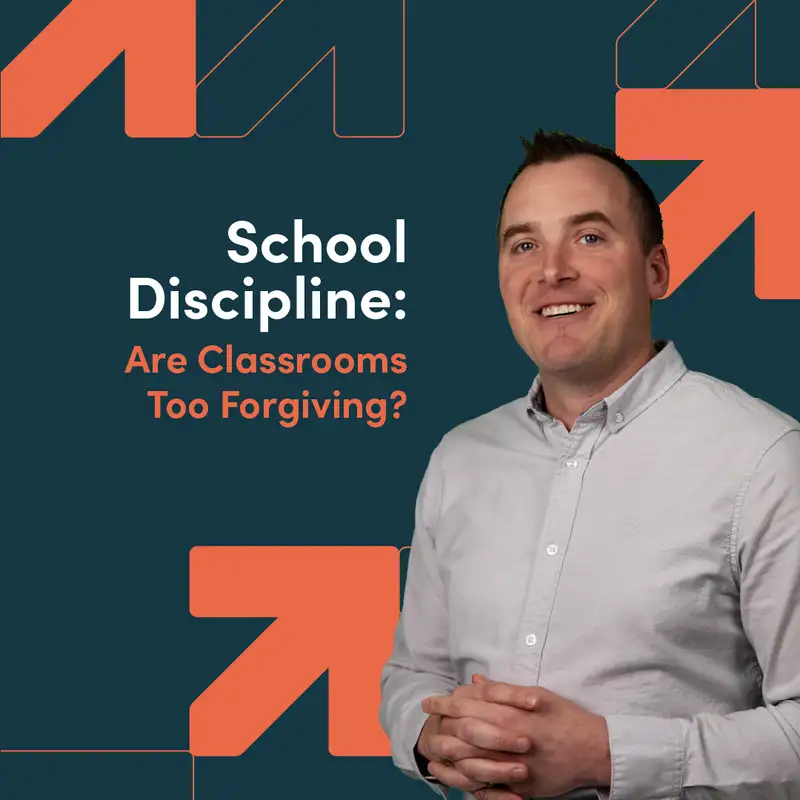School Discipline: Are Classrooms Too Forgiving?
Hello, everyone.
Thanks for listening to Wake Up, Look Up, a podcast where we connect events happening in real time to the gospel of Jesus Christ.
I'm Zach Weihrauch.
In today's episode, we're talking about school discipline, and we're asking: are classrooms too forgiving?
This is prompted by an article I read by the Wall Street Journal editorial board, pointing out that the Trump administration has been changing its strategy around how it restricts the types of discipline available to schools.
As a result, several states—Texas, Arkansas, Washington—are pursuing more traditional methods of discipline in schools.
Over the last twenty years, it’s been in vogue for schools to use what's called restorative discipline.
This approach puts emphasis on coming alongside the offending child, figuring out what's going on emotionally or mentally, and helping them return to appropriate behavior.
Traditional methods, however, focus more on everyone else in the classroom.
If a child is acting out, remove and isolate them—to both reinforce that the behavior won't be tolerated and to allow the rest of the class to keep learning.
According to the Wall Street Journal, this return to traditional discipline is an important policy shift that will impact our country.
Texas, for example, reported over 3,000 instances of educators being assaulted by students last year.
This is, they say, a widespread problem caused in part by restorative discipline.
As educators try to work with children who are agitated or violent, classroom learning is disrupted.
So Texas is moving toward removing and isolating those students to help them away from the rest of the class.
Arkansas has dropped its requirement for positive behavioral support, saying it wants to move away from restoring the offender and focus on classroom progress.
Critics of lenient approaches argue this widens educational inequality, especially in lower-income areas where the focus is on restoring the offender while the rest of the class falls behind.
So how should we as Christians think about school discipline?
This matters whether you're a parent or not. The kids growing up in our schools will be your future employees, employers, neighbors, and colleagues.
We reap what we sow as a society.
I believe the move back to a more corrective form of discipline is a good one. Here’s why:
First, the Bible repeatedly affirms that God establishes authority.
Romans 13 tells us there is no authority except from God.
Children need to learn that authority exists, and it’s to be respected.
Of course, we don’t want to teach kids to fear authority, but I worry that restorative discipline teaches the opposite—that the child is the authority and their felt needs drive policy, rather than meeting the boundaries of a firm authority.
Second, discipline is an act of love.
Hebrews 12:6 says the Lord disciplines those He loves.
Our culture often sees discipline as unloving or authoritarian, but biblically, discipline is deeply loving.
A child who isn’t disciplined becomes a danger to themselves, to others, and to society.
The Bible also tells us to advocate for the innocent.
Proverbs 31:8 says to speak up for those who cannot speak for themselves.
As someone who experienced bullying in school, I can tell you: if my teachers had focused on restoring the bully, I would’ve suffered.
I needed adults to protect me and provide a safe learning environment.
We also must teach kids that sin has consequences.
The Bible says you reap what you sow.
If kids can push boundaries without consequence, they learn to defy authority.
Eventually, it won’t be school—it’ll be the police, an employer, or their community.
And we all suffer the consequences of that.
Peace should be the goal in schools—and peace requires action.
When Jesus says in Matthew 5:9, “Blessed are the peacemakers,” he doesn’t mean avoid conflict.
Sometimes peace only comes through conflict—like dealing directly with an offending student.
Of course, that raises questions about trusting the adults in charge.
We shouldn’t place kids in school systems with teachers we don’t trust—but that’s another podcast.
Still, teachers and administrators must be able to handle unruly students for the good of everyone.
If we don’t take discipline seriously, we’ll pay for it as a society.
I’m glad to see some schools making changes, and I think in twenty years, we’ll all be glad they did.
Hey.
Thanks for watching this episode of Wake Up, Look Up.
If you enjoyed it, help us get the word out by sharing it with someone who might benefit.
And while you're here, make sure to subscribe to our YouTube channel or download the CCC app for more resources to grow in your faith and relationship with Jesus Christ.
Have an article you’d like Zach to discuss? Email us at wakeup@ccchapel.com!
Creators and Guests


